Jospong Group of Companies (JGC) is targeting $400 million in funding from the African Export-Import Bank (Afrexim Bank) to accelerate its waste management and rice production projects across Africa, with major plans for Nigeria and Ghana.
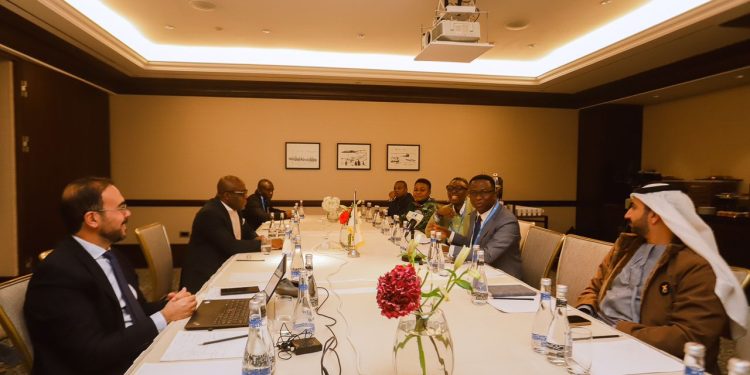
The funding is part of JGC’s broader strategy to expand its successful waste management model in key African markets and address critical issues such as food security.
In Nigeria, Jospong Group plans to establish nine state-of-the-art plants focused on recycling waste into valuable products like fertilizers, compost, and recyclable materials.
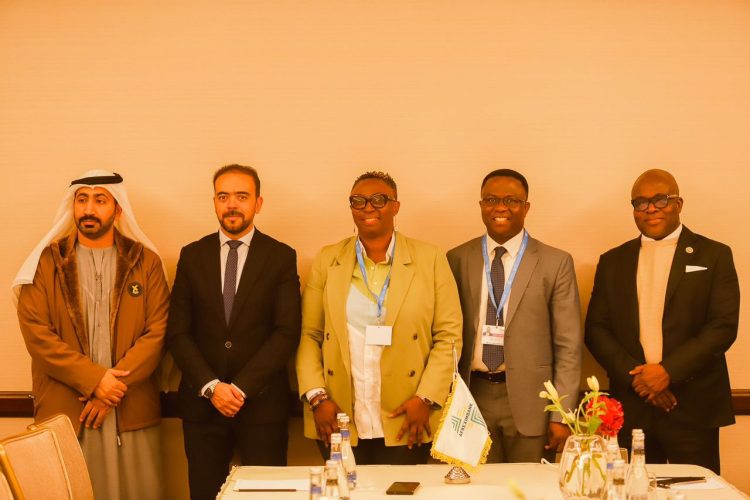
The project will also involve the construction of waste transfer stations and the enhancement of waste collection services in Lagos, one of the most populous cities in Africa.
This initiative aligns with the group’s commitment to promoting environmental sustainability and creating jobs within the region.
During an interview on the sidelines of COP29, Jospong Group’s Chief Investment Officer, Noah Gyimah, underscored the importance of expanding their discussions with Afrexim Bank to secure the necessary financial backing for these major projects.
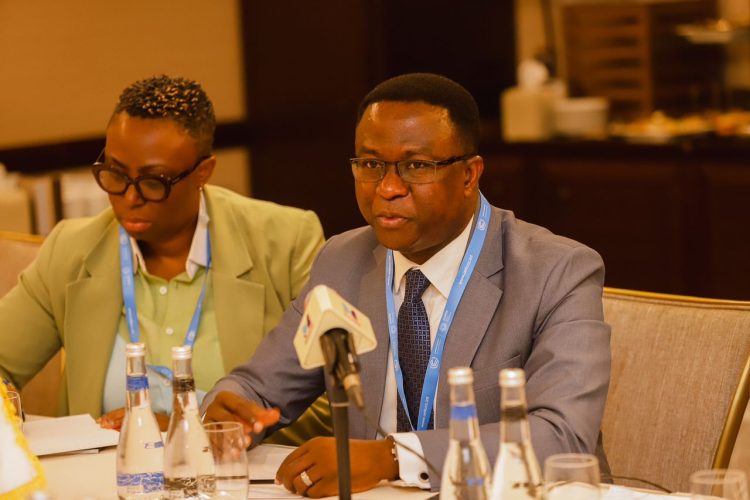
He noted the various funding options available from Afrexim Bank, including research and development funding, which would assist in the feasibility studies required for the successful implementation of their waste management and agricultural projects.
The group’s expansion efforts are not limited to Nigeria. JGC is also in advanced discussions with stakeholders in Uganda and Kenya to replicate its successful waste management model.
As part of the broader financing strategy, JGC aims to raise an additional $50 million to fund its rice production project in Ghana, an initiative that aims to boost local production and reduce reliance on rice imports.
“Afriem Bank has shown a keen interest in food security initiatives, particularly around our rice production business. They are exploring funding opportunities that would significantly enhance our capacity to meet local demand,” Gyimah stated.
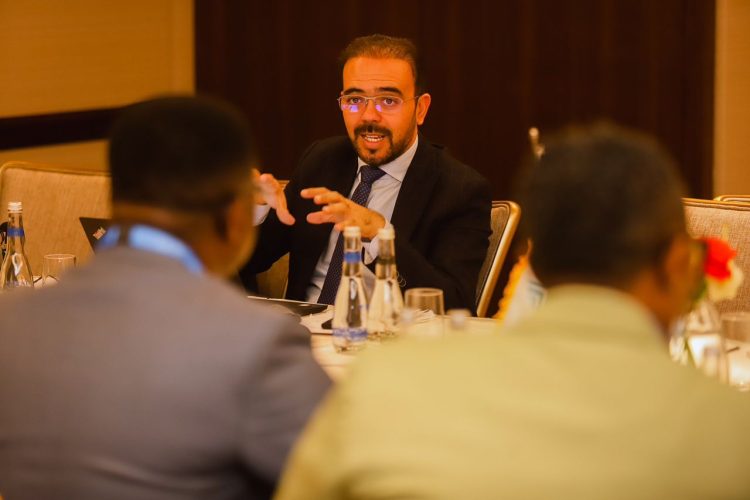
The rice project, located in northern Ghana, will focus on improving production techniques by investing in high-quality seeds, modern agricultural technologies, and providing training for smallholder farmers.
The initiative is seen as a crucial step towards reducing Ghana’s dependence on imported rice, which has seen an increase in consumption over the last decade.
In 2023 alone, Ghana spent over ¢6.8 billion (approximately $560 million) on rice imports. The project aims to reverse this trend by developing an integrated rice farming model in partnership with key industry players in both Ghana and Thailand.
Gyimah also highlighted the importance of continuing dialogue with Afrexim Bank’s leadership to prioritize critical projects and identify key stages for successful implementation.
With the bank’s support, Jospong Group expects to make significant strides in achieving its goal of self-sufficiency in rice production while helping to alleviate the financial burden of food imports.
Jospong Group’s subsidiary, the Asian-African Consortium, has been working on modernizing Ghana’s rice industry by providing access to better farming inputs and promoting local rice cultivation.
By integrating advanced farming technologies and improving the livelihoods of smallholder farmers, JGC aims to contribute to Ghana’s long-term agricultural development goals and to the government’s strategy for import substitution.
The partnership between Jospong Group and Afrexim Bank also offers access to advisory services and funding at competitive rates, which will accelerate the group’s expansion plans.
With a focus on sustainable development and economic growth, the collaboration is expected to play a vital role in enhancing infrastructure, boosting job creation, and addressing some of Africa’s most pressing challenges related to waste management and food security.
This strategic partnership positions Jospong Group as a key player in Africa’s green economy, with a vision for long-term growth across the continent.




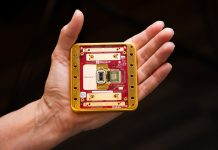









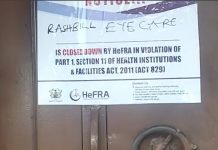
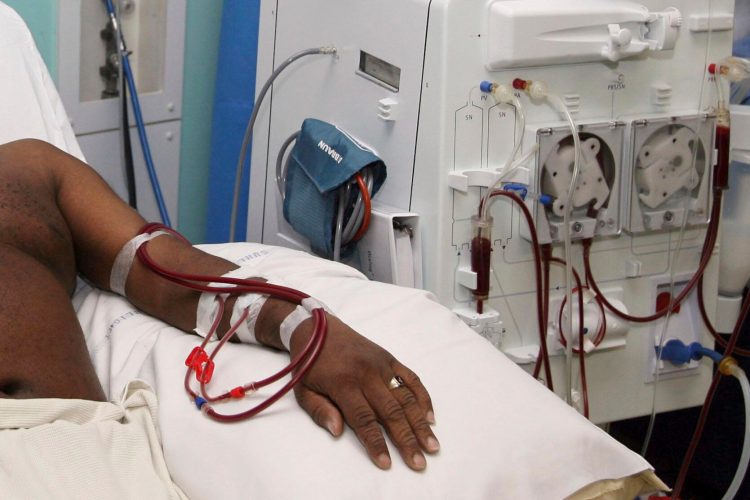
















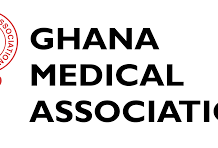





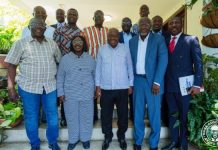















![[FREE FREE MONEY] Predict and Win a Guaranteed GH¢200 From Us EVERY WEEK](https://wordpress.ghanatalksradio.com/wp-content/uploads/2022/02/Predict-and-Win-Final-09-03-2021-218x150.jpg)
![[Predict & Win – 8th/Oct.] WIN A Guaranteed ¢200 From Us This Week](https://wordpress.ghanatalksradio.com/wp-content/uploads/2021/10/maxresdefault-16-218x150.jpg)
![[Predict & Win – 2nd] WIN A Guaranteed ¢200 From Us This Week](https://wordpress.ghanatalksradio.com/wp-content/uploads/2021/09/maxresdefault-50-218x150.jpg)
![[Predict & Win – 25th] WIN A Guaranteed ¢200 From Us This Week](https://wordpress.ghanatalksradio.com/wp-content/uploads/2021/09/maxresdefault-36-218x150.jpg)
![[Predict & Win – 18th] WIN A Guaranteed ¢200 From Us This Week](https://wordpress.ghanatalksradio.com/wp-content/uploads/2021/09/maxresdefault-23-218x150.jpg)










![[National cathedral] See full list of churches that have contributed since 2018](https://wordpress.ghanatalksradio.com/wp-content/uploads/2020/09/Ghana-National-Cathedral-GhanaTalksRadio-100x70.jpg)



